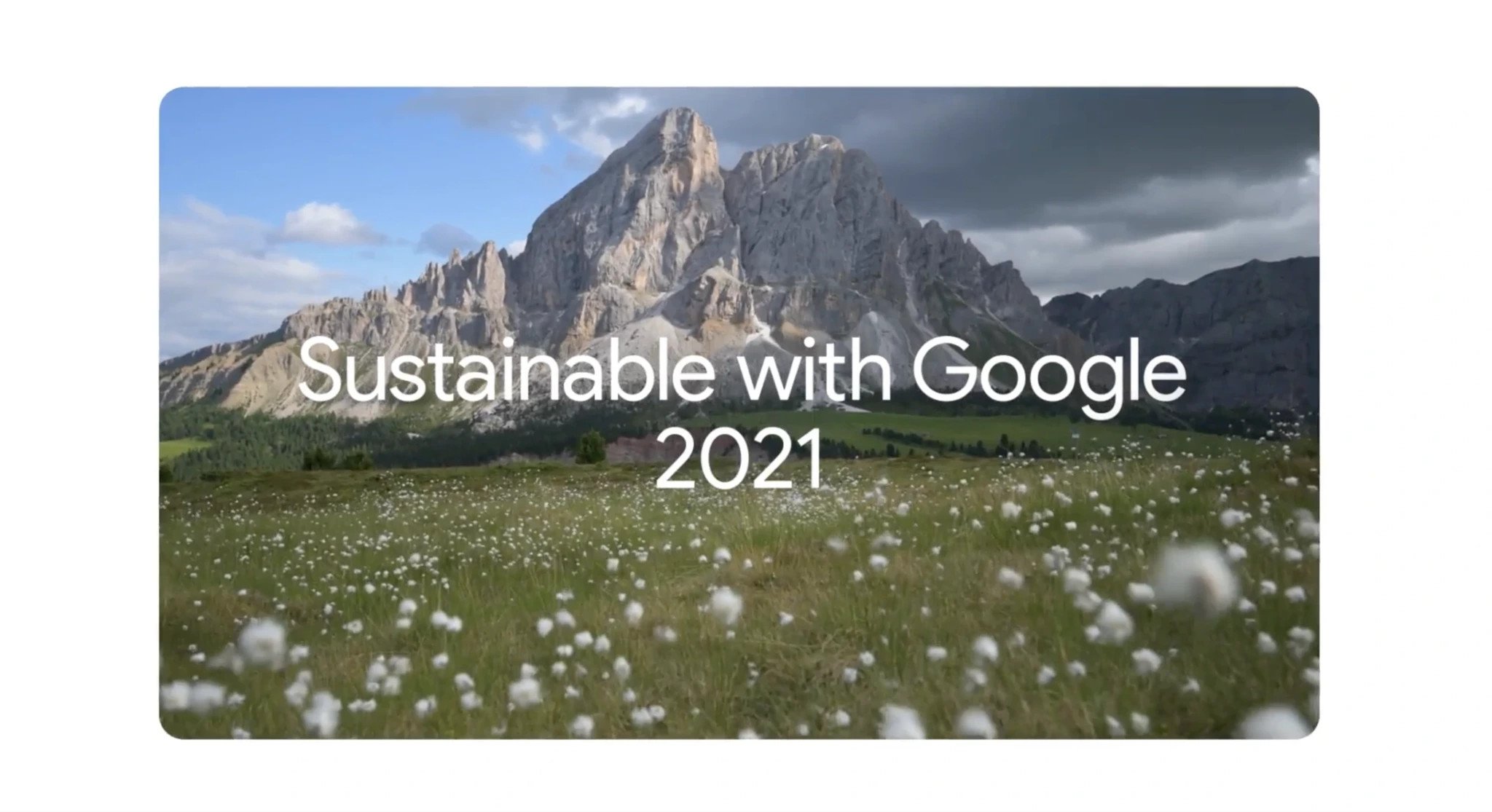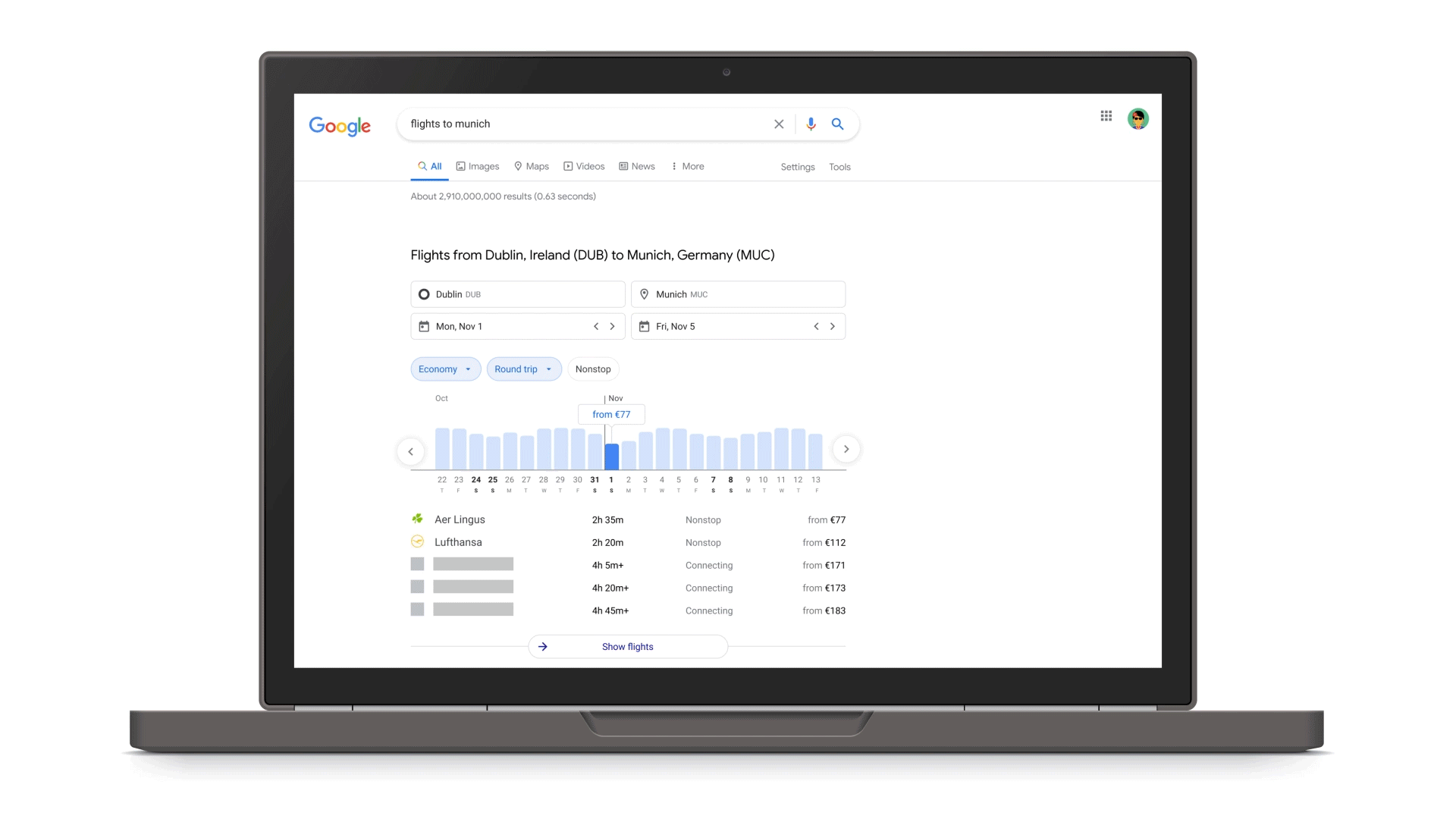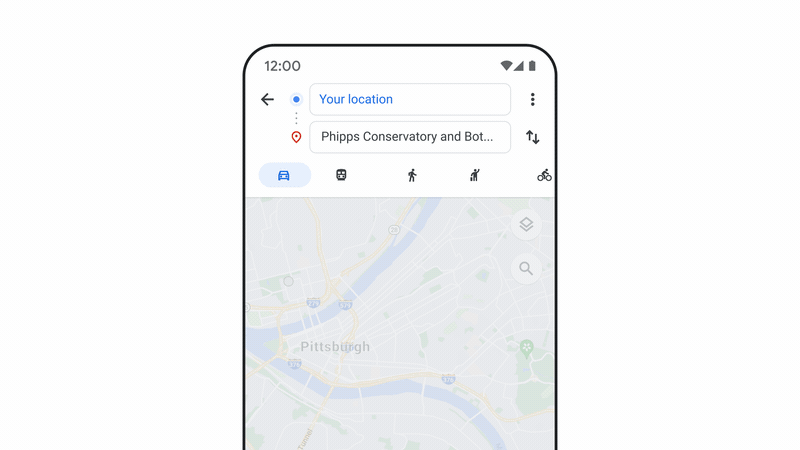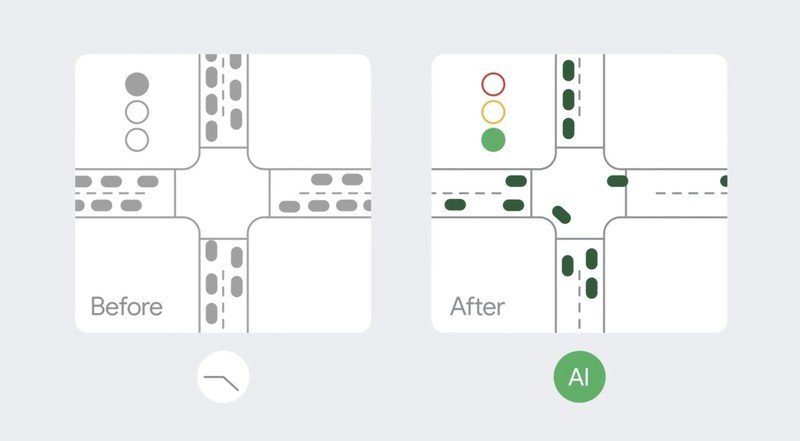Google's latest features encourage you to live a more eco-friendly life

What you need to know
- Google announces its latest sustainability features to fight climate change.
- Google is introducing new features in Search and Maps to help consumers make more sustainable choices.
- Many of these features are rolling out globally starting October 6, with others arriving in the coming weeks or months.
During the Sustainable with Google event on Wednesday, Alphabet CEO Sundar Pichai outlined the company's latest plans to help fight climate change. After pledging for its campuses and data centers to run carbon-free by 2030, the company is turning its attention to consumers to help them make more sustainable choices by 2022.
As part of this plan, Google is introducing more than a few features and updates to its apps and services on the web and the best Android phones, aimed at making it easier to live a more eco-friendly life.
Travel greener
Starting today, Google is bringing more features meant to help users become more aware of their carbon footprint while providing access to tools to help users already making sustainable transportation choices.
When searching for flights, Google will now show the associated CO2 emissions and highlight those that will produce less with a green badge. Google is also highlighting hotels with certifications from organizations like EarthCheck or Green Key while letting users view the sustainable practices from establishments like Hilton and Accor.

With Maps, Google is partnering with the U.S. Department of Energy's National Renewable Energy Laboratory (NREL) to display the most fuel-efficient routes to help users get to their destination quickly while optimizing fuel consumption. Users will be able to compare between the fastest route or the most fuel-efficient.

This feature is available in the U.S. starting today and will reach Europe sometime in 2022.
In the coming months, Google will roll out "Lite Navigation" for cyclists, making it easy to get vital, at-a-glance information such as trip progress, ETA updates, and route elevation without needing to keep their eyes off the road.
Be an expert in 5 minutes
Get the latest news from Android Central, your trusted companion in the world of Android

Today, users in 300 cities globally will be able to use Google Maps to find bike or scooter shares.
Search and shop sustainable
Another way Google is helping promote cleaner travel is by making it easier to search and shop for eco-friendly cars by highlighting tagging or electric models. This feature will roll out next year in the U.S. and will also allow users to view nearby charging stations when researching specific models.
Google will also help users shop for energy-efficient home appliances, particularly energy-intensive ones like dishwashers, furnaces, dryers, water heaters, and stoves. Coming this week, when searching for any of these items, the Shopping tab will help narrow down options that are both cost-effective and efficient.
Later this month, Google will make a dedicated search results page for anyone interested in learning more about climate change and how they can reduce their carbon footprint. This will be available to users in English, Spanish, and French and include information from sources such as the United Nations.

Going the extra step
Google is also launching a new program called Nest Renew that will help Nest Thermostat owners live cleaner by adjusting usage to times when energy is cheaper and cleaner.
However, features like this are only the tip of the iceberg in Google's fight against climate change. The company has started researching and testing the use of AI in traffic lights to help make them run more efficiently. This has already been tested in Israel, with Google noting a "10-20% reduction in fuel and intersection delay time."

The idea of Google controlling traffic lights is an interesting one, to say the least, although the effort is still in early research phase. That said, the company is already planning to test this in Rio de Janeiro and is in talks with more cities across the globe.
Google has already made strides in eliminating its carbon footprint, becoming the first major company to go carbon neutral in 2007 and following that up in 2017 by matching its electricity consumption with 100% renewable energy. With these latest efforts, Google can hopefully influence more consumers to live greener lives while also encouraging more companies to expand their sustainability offerings.

Derrek is the managing editor of Android Central, helping to guide the site's editorial content and direction to reach and resonate with readers, old and new, who are just as passionate about tech as we are. He's been obsessed with mobile technology since he was 12, when he discovered the Nokia N90, and his love of flip phones and new form factors continues to this day. As a fitness enthusiast, he has always been curious about the intersection of tech and fitness. When he's not working, he's probably working out.
